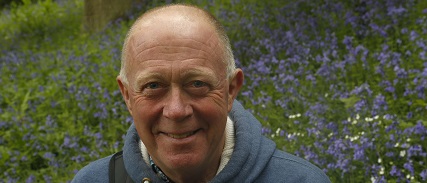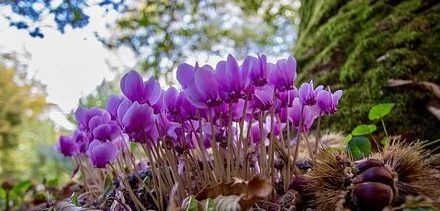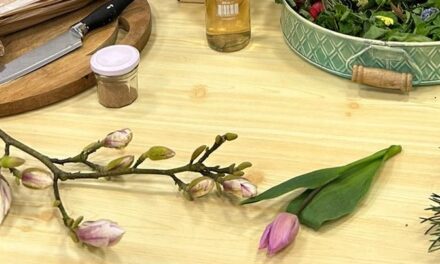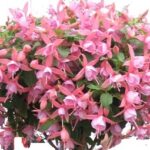Meeting: June 25th
In June the club welcomed Dr Wilson Wall of Bewdly Orchids, author of ‘How to Grow Native Orchids in Gardens Large and Small’. Bewdly Orchids is a commercial enterprise but very much focussed on orchid conservation. They grow orchids from seed under sterile laboratory conditions (to aid germination and initial growth), then sell the orchids when they are ready for planting. Orchid seed is the smallest in the world with most being the size of a speck of dust and orchids are very slow to germinate and grow, taking between 2 and 5 years to grow into plants just a centimetre high.
As well as their slow development cycle, Dr Wall explained that native orchids are in decline because they require specific environmental conditions to thrive: undisturbed land (a rarity since the agricultural revolution of the 1950s); little competition from other plants; and a symbiotic fungus to be present in the soil in order to germinate because orchid seed has no surrounding nutrients of its own. However, we learned that the required environment for growth can readily be created by converting even small patches of garden lawn to a wild flower area by simply not mowing a patch of grass until autumn and introducing species such as yellow rattle to supress the grass when planting your first native orchids. Native orchids can also be grown in pots or in garden beds.
Another reason Dr Wall gave for native orchids being in decline is that they rarely survive being dug-up. Native orchids have very few, but very long, tap roots (up to 60cm long in some species) and digging them usually results in the roots being severed, killing the plant. It is illegal to dig up wild flowers without permission of the landowner, but Dr Wall suggested that before planting our own orchids, we make certain that we are planting them in the area where we want them to stay!
The Common Spotted Orchid will grow and propagate in most areas (the required symbiotic fungus being present) but Dr Wall recommended researching the suitability of the soil before spending money on other native orchids. Native orchids are hardy perennials and with care will increase in numbers once established and Dr Wall’s presentation included inspiring photographs of swathes of beautiful orchids gracing the smallest of gardens as well as whole meadows.








